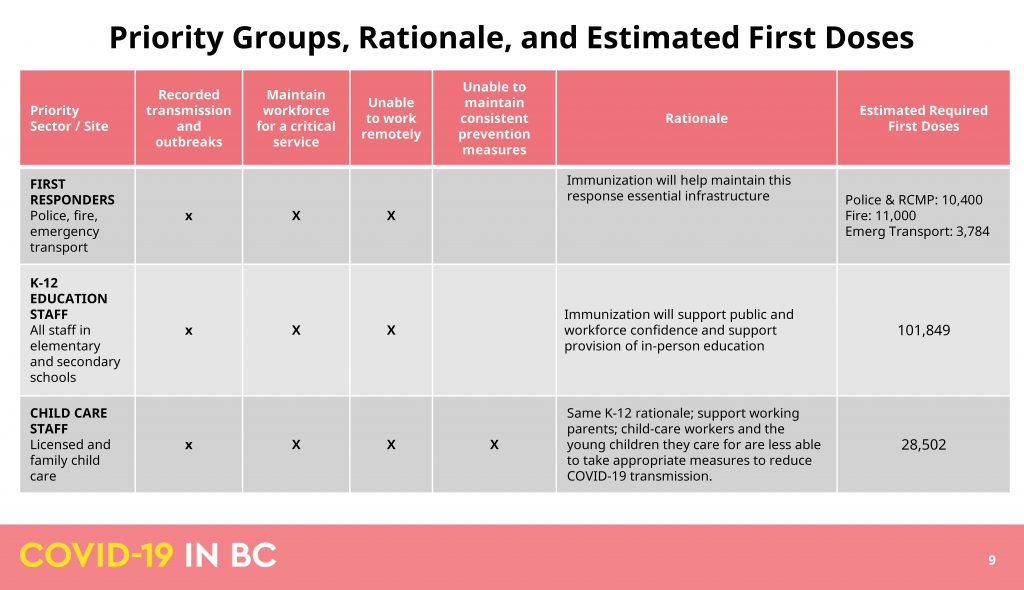We are pleased with yesterday’s announcement by Premier John Horgan that education support workers will be included in Phase 2 and Phase 3 of B.C.’s vaccination plan.
We have advocated for this on many levels. Many of our members are in workplaces with high rates of exposure or do not have access to barriers while working indoors and in close proximity to large numbers of children and co-workers.

- Approximately 340,000 doses of AstraZeneca/Covi-Shield, a fridge-stable vaccine, are expected to start arriving at the end of this month.
- Starting in April, priority groups will focus on frontline workers including all staff in elementary and secondary schools.
- Members in these priority groups are asked to not call their local health authority to book a vaccine appointment.
Appointments will be organized by employers. - Vaccines will be administered by community pharmacists, at existing immunization clinics, and at mobile clinics in some worksites.
- We expect that everyone in this sector will be able to be vaccinated by the end of May.
Details of the updated Immunization Plan can be found here.
Vaccination FAQ
If the adults in school (staff and administrators) are vaccinated, are they still at risk if they’re in a classroom of children who aren’t vaccinated?
All vaccines approved for use in Canada are effective in preventing COVID-19.
By fall 2021, we expect a large majority of adults in B.C., including school staff, to be vaccinated. As more people get vaccinated, we expect to see fewer cases of COVID-19 in communities, which means there should be fewer cases in schools.
People who are vaccinated can still get COVID-19, but are far less likely to experience severe illness. Even with most adults being vaccinated, there will likely still be some health and safety measures in place in schools and other settings until there is significantly less community transmission.
Here is the March 18 presentation on B.C.’s COVID-19 AstraZeneca/Covi-Shield Program.
View PDF.
Please follow us @cupek12bc on Twitter, Facebook and Instagram and view bulletins at https://bcschools.cupe.ca.
